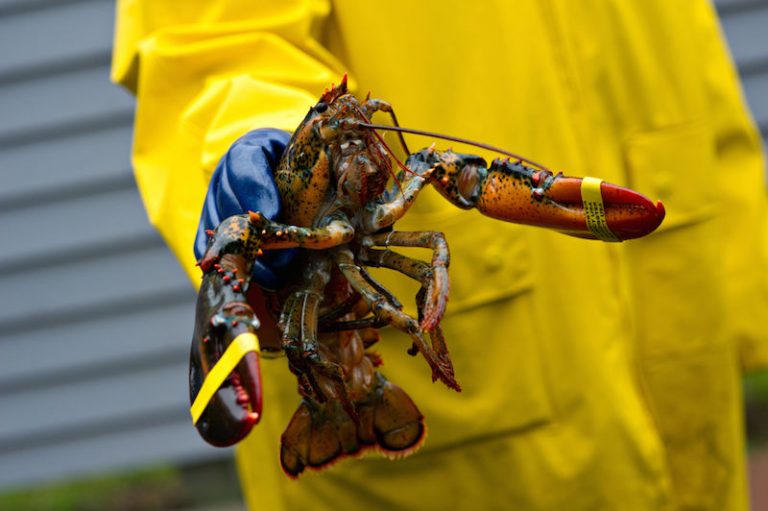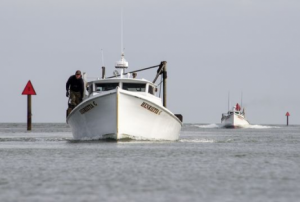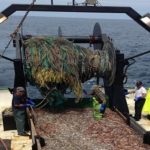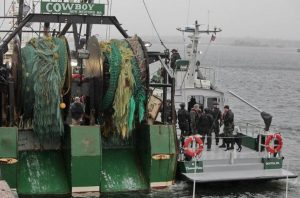Tag Archives: gag grouper
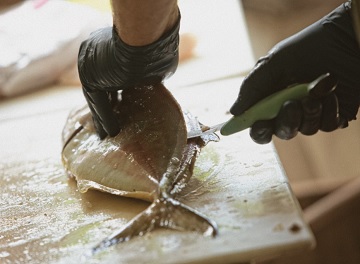
One fish, two fish: The local commercial fishing industry faces daunting challenges despite high demand
It’s just after noon on an unseasonably warm Friday in early spring. Naples has had a string of cold days and now this hot one, but no one standing in line in front of Mike’s Bait House in East Naples seems to mind. The line extends from the street, where cars are parked nose-to-bumper. It snakes through the parking lot and winds beside a black extended-cab Chevy. In the back of the truck, two young men from Dilly’s Fish Co, owned by Tim “Dilly” Dillingham, lean over Grizzly coolers. “What’s the difference between a lane snapper and a red snapper?” a man in line calls out. “A red snapper’s going to be a little more firm,” one of the young men in the back of the truck answers. That’s Dominick Biagetti, Dillingham’s right-hand man. Biagetti serves as boat captain and crew, and he helps with offloading and delivery. He has a seascape tattooed on his leg, an underwater reef scene with a turtle and a moray eel. >click to read< 12:10
Controversy brewing over snapper-grouper Exempted Fishing Permit
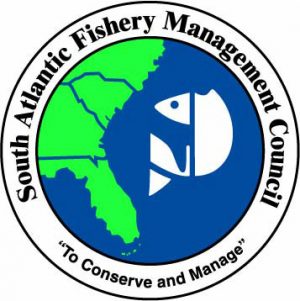 A storm is brewing in the South Atlantic region, a storm of controversy over snapper-grouper fisheries access and allocation. A group of four commercial fishing businesses – the South Atlantic Commercial Fishing Collaborative – filed an Exempted Fishing Permit (EFP) application with the National Marine Fisheries Service on Feb. 6. If approved by NMFS, the EFP would allow a group of 25 snapper-grouper boats operated by the four businesses to harvest blueline tilefish, gag grouper, gray triggerfish, greater amberjack, vermilion snapper and species in the jacks complex for two years (2018-19) in a pilot program while being exempt from numerous fishing regulations. The generic name for such a fisheries management method is catch shares, which, according to NOAA Fisheries, is a program in which “a portion of the catch for a species is allocated to individual fishermen or groups. Each holder of a catch share must stop fishing when his/her specific share of the quota is reached.” But it is a concept the huge majority of saltwater fishermen – recreational fishermen and small commercial fishing operations – have proven to be vehemently opposed to. continue reading the story here 08:12
A storm is brewing in the South Atlantic region, a storm of controversy over snapper-grouper fisheries access and allocation. A group of four commercial fishing businesses – the South Atlantic Commercial Fishing Collaborative – filed an Exempted Fishing Permit (EFP) application with the National Marine Fisheries Service on Feb. 6. If approved by NMFS, the EFP would allow a group of 25 snapper-grouper boats operated by the four businesses to harvest blueline tilefish, gag grouper, gray triggerfish, greater amberjack, vermilion snapper and species in the jacks complex for two years (2018-19) in a pilot program while being exempt from numerous fishing regulations. The generic name for such a fisheries management method is catch shares, which, according to NOAA Fisheries, is a program in which “a portion of the catch for a species is allocated to individual fishermen or groups. Each holder of a catch share must stop fishing when his/her specific share of the quota is reached.” But it is a concept the huge majority of saltwater fishermen – recreational fishermen and small commercial fishing operations – have proven to be vehemently opposed to. continue reading the story here 08:12

































